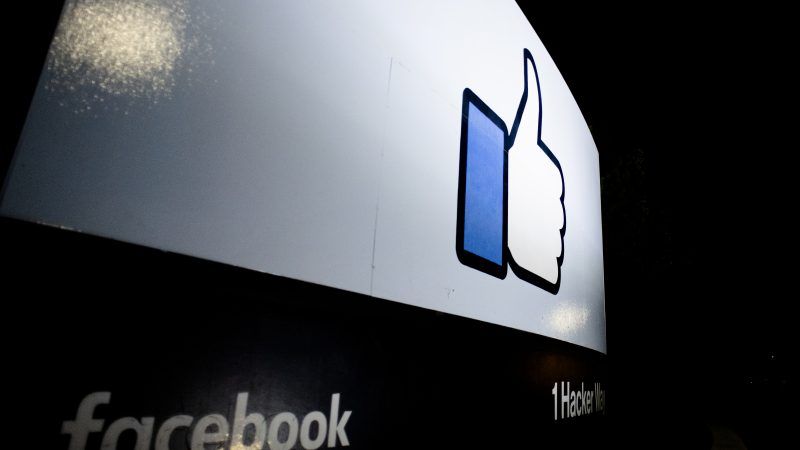Facebook Is Right to Let the Lying Trump Ad About Biden Stand
As always, the best answer to bad speech is more speech, not censorship.

Facebook has been taking heat for refusing to remove a Trump campaign ad that includes misinformation about Joe Biden. The ad claims that Biden "promised Ukraine $1 billion if they fired the prosecutor investigating his son's company," even though there is no evidence that this happened.
But Facebook is far from the only company to allow the ad. The ad has graced Twitter, YouTube, and a slew of TV outlets: ABC, CBS, MSNBC, and Fox News. Only CNN seems to have rejected it.
Of course, it means different things for different entities to air the ad. The cable networks are both accepting money from the campaign and, at executives' discretion, giving the commercial a spot in a very limited amount of available airtime. The broadcast networks are doing the same, but with less choice in the matter: "broadcasters such as NBC, ABC and CBS have to comply with the Federal Communications Commission's rules around political ads, which bar them from censoring candidates," The Washington Post notes. They've largely interpreted this to mean "they must run ads from candidates, while they can fact-check and prohibit ads from Super PACs and other third-party groups."
Social media venues, meanwhile, may make money from the ad if the Trump 2020 campaign chooses to pay to promote it. But campaigns can post ads to these platforms for free too, and without any gatekeeping from company executives. So can tons of other users.
In other words, Facebook (and Twitter, and YouTube) are not proactively choosing to include this particular ad within a limited space for messages, nor are they making big bucks off it. They're simply choosing not to censor the myriad individual accounts that might share the ad.
This is an important distinction when it comes to assigning culpability. Perhaps neither TV executives nor social media companies should be in the business of evaluating and arbitrating political claims. At any rate, the social platforms aren't set up to do this—and it isn't a role many people of any political persuasion would be happy with them playing.
The issue certainly isn't unique to Facebook. And yet, perhaps owing to the site's reputation for aiding "election meddling" last time around, Facebook has been singled out for criticism.
"The company's position stands in contrast to CNN, which rejected two ads from the Trump campaign last week, including the one the Biden campaign asked Facebook to take down," The New York Times reported Tuesday, noting that "the cable channel said it rejected the ad because it 'makes assertions that have been proven demonstrably false by various news outlets.'"
"Facebook's decision to promote Trump's lies shows how it's programmed to protect the powerful," trumpeted a Guardian headline today.
Sen. Elizabeth Warren (D–Mass.) called out Facebook too, tweeting that the company had "already helped elect Donald Trump once because they were asleep at the wheel while Russia attacked our democracy—allowing fake, foreign accounts to run ad campaigns to influence our elections"—and now "intends to use their influence in this election."
Biden has sent a letter asking Facebook and Twitter to remove the ad.
Again: For these platforms, removing the ad doesn't just mean rejecting official campaign advertising; it means playing whack-a-mole with anyone who posted it. And that, in turn, would open them up to even more accusations of censorship and political bias.
As usual, the best way to counter bad speech is with more speech. The best way to counter the misinformation in the Trump ad is for the Biden campaign to hit back with its own ads, for ostensibly impartial outlets like news media to call out campaign falsehoods, for people interested in the issue to share those responses widely, and for social media arbiters to get out of the way.
